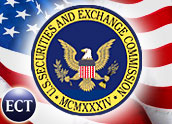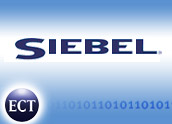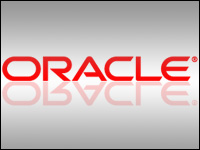
For the second time in as many years, the U.S. Securities and Exchange Commission has slapped a violation for Regulation FD, short for “fair disclosure,” on CRM vendor Siebel Systems. The June 29th charge also says that the company violated an SEC cease-and-desist order placed on it for an earlier breach of the same regulation.
Two of the company’s senior executives, Kenneth A. Goldman, chief financial officer, and Mark D. Hanson, senior vice president of corporate development and the company’s former investor relations director, were charged with the violations. Company spokespeople did not return CRM Buyer’s call requesting a comment on the action.
The new complaint also seeks unspecified penalties for the company along with a permanent injunction to prevent future Siebel slipups.
Details of the SEC Complaint
The SEC’s complaint claims that in New York on April 30, 2003, only six months after the cease-and-desist order was in place, Goldman disclosed nonpublic information during two private events he attended with Hanson — a “one-on-one” meeting with an institutional investor, Alliance Capital Management, and a Morgan Stanley hosted invitation-only dinner.
According to the complaint, Goldman made positive comments about Siebel’s business activity levels and transaction pipeline that contrasted with negative public statements the company made about its business in the preceding weeks.
The complaint goes on to say that, based on Goldman’s information, Alliance converted its 108,200 share-short position in Siebel stock into a 114,200 share-long position — a net change of 222,400 shares. In addition, Morgan Stanley dinner attendees also spread this information.
The day following the private meetings, May 1, 2003, the company’s stock price closed at approximately 8 percent over the day before, while its trading volume nearly doubled the daily average volume of the preceding year.
Although he was in charge of Siebel’s Regulation FD compliance, Hanson failed to abort the two selective disclosures. Moreover, neither he nor Goldman made Siebel issued the speedy public disclosure required.
James Meyers, assistant chief litigation counsel for the division of enforcement at the SEC, told CRM Buyer that part of complaint is the allegation that Siebel did very little to assure compliance with the regulation after its first violation.
Second Time Around
The first infraction, filed in November 2002 involved Siebel’s founder and then-CEO Tom Siebel disclosing information to the attendees at an invitation-only technology conference in California.
That filing cites that during a November 5, 2001 conference, Siebel’s positive comments about his company’s business were based on nonpublic information that contrasted with negative statements about the company’s business that he had made three weeks earlier during a public conference call.
Gerald Murray, editor of the Chicago-based Investor Relations Newsletter, told CRM Buyer that Regulation FD had now been around long enough that by now it should be second nature to companies.
“With all the company scandals over the past couple of years, the government has been very prickly about it,” Murray said.
“It’s too soon to predict when this might go to trial,” SEC litigator Meyers said. “There are lots of factors to consider — how long is needed for discovery, and even how long the judge will allow for it.”
Short for ‘Fair Disclosure’
Adopted in August 2000, Regulation FD prohibits public companies from selectively disclosing material, nonpublic information to certain persons — securities analysts, broker-dealers, investment advisers and institutional investors — before disclosing that same information to the public. The regulation applies to any information that may move a company’s stock price.
Guidelines issued by the National Investor Relations Institute (NIRI), a professional association of 4,500 corporate officers and investor relations consultants, say that when a public company has nonpublic information to discuss in a selective forum, Regulation FD calls for it to disclose that information publicly “prior to or simultaneously with the disclosure in any non-public forum.”
The institute suggests that this fair disclosure can be through a news release, in a Form 8-K or in a conference call open to the public. If a company unintentionally disclosures material in a manner that violates the rule, it must act to rectify it within 24 hours.
Both Siebel violations involved invitation-only sessions to which the general public did not have access, limiting access to the information.
Should a company executive slipup and disclose something accidentally, regulators expect to see the company respond immediately, Murray pointed out.
“They need to make a good faith effort by moving precipitously to fairly disclose the same information,” Murray said. “Doing this gets them the benefit of the doubt.”
Murray went on to explain that around-the-clock trading and stocks moving on multinational exchanges required the quick response to recoup any inadvertent mistakes.
Exchange Act Rule Also Violated
Yesterday’s SEC filing also cited Siebel for violating Exchange Act Rule 13a-15 that requires issuers to maintain disclosure controls and procedures designed to ensure the proper handling of information under the Exchange Act, and to ensure that management has the information it needs to make timely disclosure decisions.
This is the first regulatory case charging a violation of this rule.
Said Murray: “Violating Regulation FD a second time makes it look like they are playing games and the government doesn’t like companies playing loosey-goosey with its regulations.”
At the end of trading Tuesday, Siebel’s shares closed just under US$11, down about 4 percent.





















































